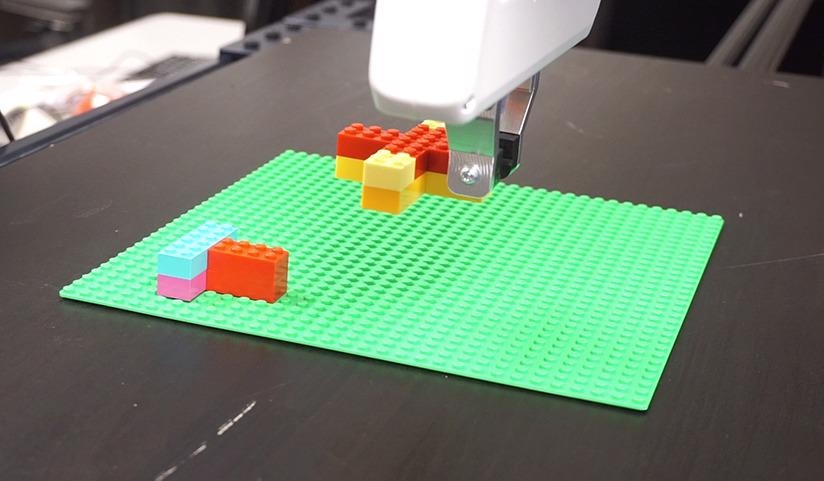As more robots join humans on the manufacturing floor, in warehouses, and everywhere on the job, determining who will do what duties becomes more complicated. Some tasks are better suited to humans, while others are better suited to robots. In certain circumstances, it makes sense to invest effort into educating a robot to do a task and enjoy the rewards afterward.
 Robotics Institute researchers have developed an algorithmic planner that helps delegate tasks to humans and robots. Image Credit: Carnegie Mellon University.
Robotics Institute researchers have developed an algorithmic planner that helps delegate tasks to humans and robots. Image Credit: Carnegie Mellon University.
The Robotics Institute (RI) at Carnegie Mellon University has created an algorithmic planner to assist humans and robots distribute duties. “Act, Delegate, or Learn” (ADL) is a planner that evaluates a list of tasks and determines the best way to allocate them. Three questions were posed to the researchers: When should a robot take action to finish a task? When is it appropriate to assign work to a human? When is it appropriate for a robot to learn a new task?
There are costs associated with the decisions made, such as the time it takes a human to complete a task or teach a robot to complete a task and the cost of a robot failing at a task. Given all those costs, our system will give you the optimal division of labor.
Shivam Vats, Lead Researcher and PhD Student, The Robotics Institute, Carnegie Mellon University
The work of the team might be valuable in manufacturing and assembly facilities, package sorting, or any other situation where humans and robots interact to fulfill several jobs. The planner was put to the test in scenarios where people and robots had to place blocks into a pegboard and arrange Lego brick sections of various shapes and sizes.
Even when robots are part of the team, employing algorithms and software to determine how to delegate and divide labor is not new. However, this is one of the first studies to incorporate robot learning into its reasoning.
Robots aren't static anymore. They can be improved and they can be taught.
Shivam Vats, Lead Researcher and PhD Student, The Robotics Institute, Carnegie Mellon University
A human may frequently move a robotic arm manually in production to educate the robot on how to execute a task. Training a robot takes time and so requires a large initial investment. However, if the robot can acquire new talent, it might be advantageous in the long term.
Choosing when to train a robot vs assigning the duty to a human is part of the challenge. This necessitates the robot to predict what additional tasks it will be able to accomplish once it has learned a new activity.
The planner then turns the problem into a mixed-integer program — an optimization program often used in scheduling, production planning, and network design — that can be solved quickly using off-the-shelf software. In every case, the planner outperformed traditional models and reduced task completion costs by 10% to 15%.
The work was presented at the International Conference on Robotics and Automation in Philadelphia, where it has been nominated for the excellent interaction paper award. Oliver Kroemer, an assistant professor at RI, and Maxim Likhachev, an associate professor at RI, were part of the study team.
The Army Research Laboratory and the Office of Naval Research supported the study.
Journal Reference:
Vats, S., et al. (2022) Synergistic Scheduling of Learning and Allocation of Tasks in Human-Robot Teams. arXiv preprint arXiv:2203.07478.